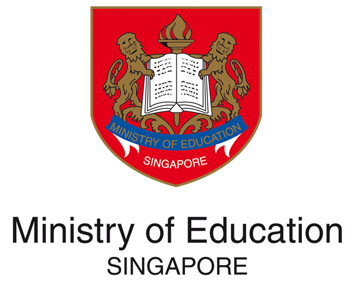Singapore is in top place in the international rankings for education. But it wants the next upgrade of its school system to focus on keeping students positive and resilient.
It was no accident that Singapore created one of the world’s highest performing education systems in five decades.
Reminiscent of the examinations for selecting mandarins in old China, the road to success in Singapore has always been focused on academic credentials, based on merit and allowing equal access for all.
This centralised system helped Singapore to create social cohesion, a unity of purpose among its schools and an ethos of hard work that many nations envy.
But the purpose of the education system has changed and Singapore in 2017 is no longer the fledgling state it was in 1965.
Schools have become highly stratified and competitive. More advantaged families are better able to support their children with extra lessons outside of school, such as enrichment classes in mathematics, English, dance and music.
Those who can’t afford this have to depend on their children’s own motivation and the resources of the school to catch up.
This social divide continues to widen because the policies that had won the system its accolades – based on the principle of meritocracy – no longer support the social mobility they were meant to bring about.
So work is in progress to tackle anything in the system that seems to be working against social cohesion.
This time around, it will no longer be enough to develop a highly-skilled workforce to plug into the global economy.
The next update of the education system will have to ensure that Singapore can create a more equitable society, build a stronger social compact among its people while at the same time develop capabilities for the new digital economy.
Government policies are moving away from parents and students’ unhealthy obsession with grades and entry to top schools and want to put more emphasis on the importance of values.
Schools have been encouraged, especially for the early elementary years, to scrap standardised examinations and focus on the development of the whole child.
“Character scorecards” and “reflection journals” have become the staple in many primary schools, to allow parents to follow the social and developmental progress of their children.
A number of schools have also adopted an approach centred on well-being, as promulgated by Dr Martin Seligman, director of the Positive Psychology Center at the University of Pennsylvania in the United States.
Dr Seligman’s model advocates that academic success and well-being form a double helix, and that the best schooling must include educating children on values and character, as well as how to interact well with others, set goals for themselves and work towards achieving those goals.
Positive education, a movement that is gaining momentum across the world, works to create a school culture that supports caring, trusting relationships.
It is an approach that focuses on specific skills that assist students to build positive emotions, enhance personal resilience, promote mindfulness and encourage a healthy lifestyle.
This approach has worked well with schools that are trying to implement the new syllabuses for character and citizenship education, launched in the last three years.
An important segment of the new curriculum, at the primary level is family time, and how parents should play an important role in inculcating the right values in their children.
At the secondary and high school levels, “values in action” programmes lie at the core of educating young Singaporeans to be empathetic, socially responsible and active citizens in their community.
For example, students work on projects that serve the elderly, reach out to migrant workers and read to latch-key children in day-care centres.
Article from BBC News website


